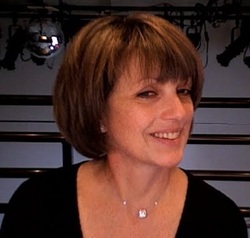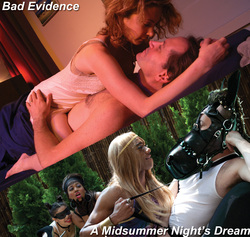 Director Shorts: Jeremy Bloom In between the longer, in-depth interviews with NYC’s Indie Directors, I’ve decided to include some “shorts.” So lighter, shorter interviews to whet your appetite! Here’s the gist: I ask a few questions via email, they reply, then I send follow up questions. Then they get to ask me a question! My first interviewee for “DirectorShorts” is Jeremy Bloom. Jeremy enjoys working with new playwrights and with new music, Jeremy directs his original adaptations including La Boheme (Spoken), Peter-Wendy (Dark), and Leaves of Grass (Nude). No idea is too un-theatrical, and the more visually exciting, the better. No form is too theatrical, but the more emotionally grounded, the better. You can learn more about him here. CP: Hello Jeremy! Thank you for being part of the inaugural DirectorSpeak off-shoot: DirectorShorts! You get to set the tone for this series – I hope you’re up for the challenge! JB: Me, too! I’m sure it will be great. I’m ready, so fire away! CP: Excellent, let’s jump right in. Was there any one incident or point in your life that convinced you that directing was what you wanted to do? JB: Yes, indeed. It was in 1989, when I saw a a gardening cart behind my grandparents’ house and thought “that should be a stage.” We could wheel it around, and it created an elevated platform anywhere we wanted. Read more here: http://catlander.wordpress.com/2013/05/30/director-shorts-jeremy-bloom/
0 Comments
 Friday, July 15, 2011 People You Should Know . . . Nancy Manocherian Nancy Manocherian: Founding Artistic director of the cell. Nancy is a lyricist, playwright and producer. Writing credit include: Sin!; Rio, a Brazilian musical novella (Theatre for the New City); and Dinner and Delusion, an opera co-written with composer Michael Sahl (The Center for Contemporary Opera/New York city Opera’s VOX Festival). Her passion is for the arts and her dream is the cell, a 21st century salon. How did you get involved with theatre? When did you start writing? I was writing poems as a means of dealing with my demons and suddenly realized they were songs with a theme, so I decided to write a musical. Eventually I freed myself from rhymes and rhythm to explore story and dialogue. Tell me about the cell. The cell evolved from my involvement with theater coupled with a long-standing fantasy I had about running a salon. I pretty much always had the Midnight in Parisfantasy depicted by Woody Allen, but I believe I had it first! Tell me about Bad Evidence and Midsummer. How do you feel the season is going? What have you loved most about the process? Kira and I have known (and loved) Terry Quinn for a while. When he brought us Bad Evidence, it felt like the right fit. We did a reading, incubation, and now have a showcase. We hope it keeps growing. Midsummer was proposed as an idea from The Hive when the cell announced “Shakespeare in the Rear” as a project for our new backyard space. We have had many discussions about how to grow our projects in a flooded theater market. We felt running two shows in tandem may help us grow an audience. It’s complicated. I think what I've loved most about the process is witnessing the myriad ingredients that are part of collaboration. It is amazing and gratifying to see so much activity, so many personalities, so much talent under one roof working towards a common goal. What kind of writing inspires you? What writing doesn’t inspire me might be easier to answer. I hate predictability. I love variety. Who or what has been the biggest influence on your work as an artist? My earliest idols were Joni Mitchell and Paul Simon. Then Philip Roth, Dostoyevsky, James Joyce, and Woody Allen. In that order. What else are you working on right now? I have been writing some poetry, my memoir, a play, a newer play, and making an urn modeled on some ancient sarcophagi I saw in Israel. Posted by Zack at 2:34 PM Labels: Nancy Manocherian, People You Should Know This is your new blog post. Click here and start typing, or drag in elements from the top bar.
 JULY 2011 The Hive and the cell A Theasy Interview with The Hive's Artistic Director and co-founder, Matthew A.J. Gregory, the cell's Artistic Director, Kira Simring, and the cell's Founding Artistic Director, Nancy Manocherianby Molly Marinik This summer, The Hive and the cell join forces to present “The Summer of Lust,” which includes A Midsummer Night’s Dream and Bad Evidence playing in rep through July. The bill might encompass one old play and one new play, but both fit under the subhead “smoldering portraits of contemporary relationships.” Insert sexy cat noise here. We sent some questions to The Hive’s Artistic Director and co-founder, Matthew A.J. Gregory (who is also directing Midsummer), to the cell’s Artistic Director, Kira Simring (who is also directing Bad Evidence), and to the cell’s Founding Artistic Director, Nancy Manocherian, to learn more about the joint endeavor. Here’s what they had to say. THEASY: What are your missions? What are your companies all about? NANCY: the cell’s mission is to incubate and present new works of art. We are an artist run arts organization dedicated to creating opportunities for artists in all disciplines by providing a nurturing space for individual and collaborative work among the many diverse artists who work in our space. MATT: The Hive’s mission is about breaking down the traditional theatre hierarchy and empowering all of the artists involved to collaborate on a level playing field. We aren’t at all top down as a company. It’s truly a collective, where actors feel free to make suggestions and to work with set designers on scenery, and a lighting designer can feel comfortable in making a suggestion to an actor about a moment they are playing on stage. While many of our members fall into traditional disciplines, there aren’t the kind of rigid boundaries between roles as there often is in other theatrical endeavors. The Hive firmly believes that if we get the right artists in a room together, someone involved will have the creative solution to any problem that comes along. It is the second half of our mission, “building and serving the community through play,” that I think makes the Hive unique however. We believe in play in every sense of the word, and we are all about our community. We don’t just produce plays, we also host bar nights of drinking and merriment, themed one-night events, and a variety of other programming that falls outside of traditional theatre. Play is the unifying factor in all that we do, for audiences and for ourselves. We want audiences and artists alike to use plays and play as a way to grow into an ever enlarging community. **Read the rest of the article here** |
Archives
June 2013
Categories
All
|

 RSS Feed
RSS Feed